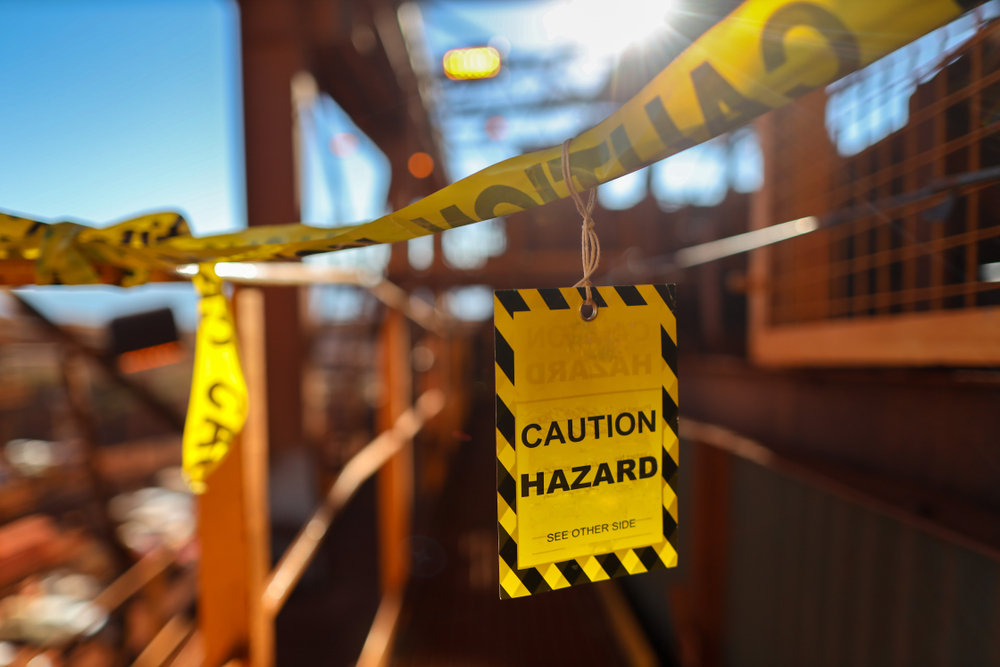Every year, thousands of Americans take on seasonal jobs in retail, warehouses, agriculture, hospitality, and delivery. These positions are essential during busy periods like the holidays, but they also come with serious risks.
From heavy lifting in warehouses to long shifts on factory floors, seasonal workers often face the same hazards as full-time employees, sometimes with fewer protections.
When accidents happen, temporary workers and their families are often left wondering: What rights do seasonal employees have if they’re hurt on the job?
Common Hazards for Seasonal Workers
While each industry is different, certain dangers show up repeatedly in seasonal jobs:
- Warehouse and Fulfillment Centers: Forklift accidents, repetitive strain injuries, heavy lifting, slips and falls.
- Retail Stores: Stockroom accidents, wet floor hazards, falling merchandise.
- Agricultural Work: Heat stress, equipment mishaps, chemical exposure, vehicle accidents.
- Hospitality and Events: Food service burns, slips, and injuries from crowded or poorly maintained venues.
- Delivery and Driving Jobs: Vehicle crashes, dog bites, and overexertion from carrying heavy packages.
Because seasonal workers are often rushed into jobs with little training or oversight, the risk of accidents can be even higher than for permanent employees.
Workers’ Compensation Coverage
In most states, seasonal and temporary workers are entitled to workers’ compensation if they’re injured on the job. This system generally provides:
- Medical care for work-related injuries
- Partial wage replacement while you’re unable to work
- Benefits for permanent disability
- Death benefits for surviving families
However, disputes often arise. Some employers attempt to deny that temporary staff qualify or misclassify workers as “independent contractors” to avoid responsibility.
Employee vs. Independent Contractor
Your classification matters. Workers’ comp typically covers employees (even part-time or seasonal), while independent contractors are not. Unfortunately, misclassification is common, especially in delivery and gig-style work.
If you’re told you’re not eligible for benefits, an attorney can help review your employment relationship and challenge improper classifications.
Beyond Workers’ Compensation: Third-Party Personal Injury Claims
Workers’ compensation is usually the first source of benefits when an employee is injured, but it has limits. It covers medical bills and partial wage replacement, yet it does not allow recovery for pain and suffering, loss of enjoyment of life, or the full value of lost income. For many seasonal and temporary workers, those limits fall far short of what’s needed to rebuild their lives.
A third-party personal injury claim is a civil lawsuit filed against someone other than your direct employer whose negligence contributed to your injury. These claims can be pursued in addition to a workers’ comp case, and they are often the only path to securing full compensation. Examples include:
- Defective Equipment: A seasonal warehouse worker injured by a malfunctioning forklift may sue the equipment manufacturer in addition to seeking workers’ comp benefits.
- Dangerous Premises: A retail employee who slips in a shopping mall where maintenance is handled by a third-party company could have a premises liability claim against the property owner or maintenance contractor.
- Negligent Drivers: Delivery workers hurt in crashes caused by other motorists can pursue personal injury lawsuits against the at-fault driver, even while receiving workers’ comp benefits.
- Contractor Negligence: In agricultural work, if a subcontractor creates unsafe conditions that cause injury, that subcontractor may be held liable.
The key distinction is that workers’ compensation is a no-fault system that provides limited benefits, while third-party claims require proving negligence but allow for much broader recovery. By exploring both avenues, injured seasonal workers can maximize their compensation and hold all responsible parties accountable.
What Injured Seasonal Workers Should Do
If you’re hurt in a seasonal job, it’s important to:
- Report the injury to your supervisor right away.
- Get medical care and document your injuries.
- Keep records of hours worked, pay, and any contracts you signed.
- Speak with an attorney before accepting a settlement or classification decision.
How Hilliard Law Can Help
At Hilliard Law, we’ve spent more than 40 years standing up for workers and families harmed by unsafe practices. We understand how corporations sometimes take advantage of seasonal employees, denying benefits or minimizing injuries to protect their bottom line. Our attorneys fight to ensure injured workers, whether permanent or temporary, receive the medical care and compensation they deserve.
If you’ve been injured while working a seasonal job, we can help. Call (866) 927-3420 or contact us online for a free consultation.

